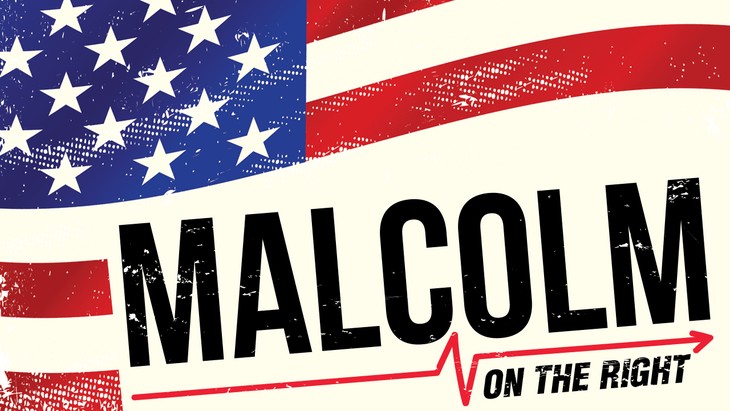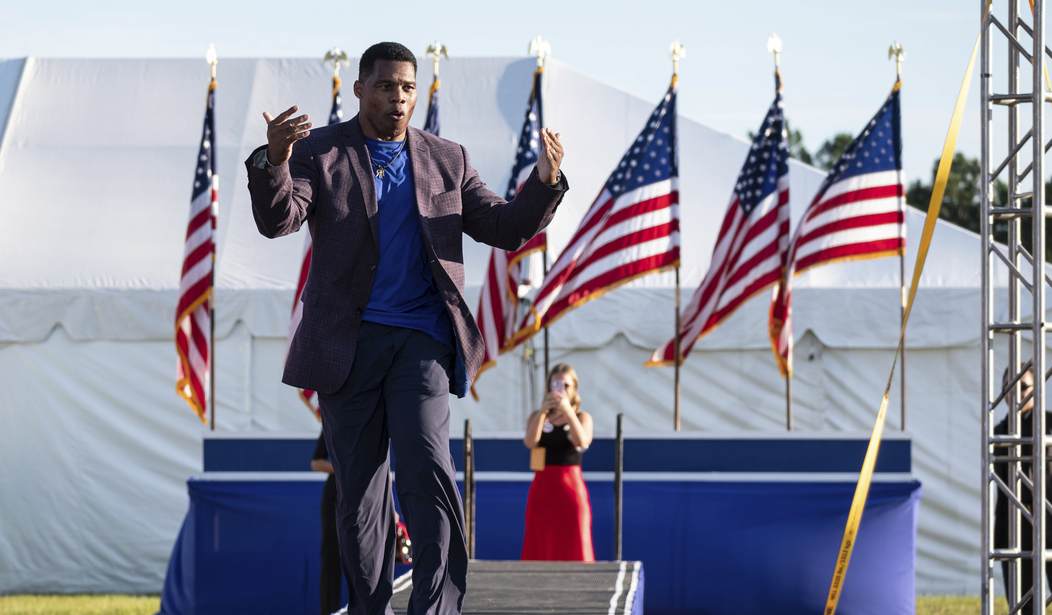How can you tell it’s October anywhere in America?
No, not by Pumpkin Spice everything. Not by Walmart’s eager Christmas decorations. But by the political surprises that jump out of the media.
The tenth month is the last month before the November elections. The perfect time to plant with eager media a quick, embarrassing, perhaps lethal attack on the campaign of election opponents, leaving them wounded with very little time to recover in the public eye.
You don’t want to waste a PR atomic bomb in summer, when so many are on vacation and not yet focused on the obligations and events of autumn.
Remember the devastating old “Access Hollywood” tape that had Donald Trump’s very own voice talking about grabbing women’s private parts and getting away with it? The Washington Post shared that one with the world on Oct. 7, 2016.
As you may recall, as intended, that scandalous revelation completely destroyed Trump’s hopes of ever becoming president. Or so it seemed for a few weeks, as numerous public supporters abandoned the adopted Republican’s candidacy.
All the way up to the evening of November 8th, when actual voting results revealed that just enough regular people in just the right electoral places had lied to pollsters about their intentions and voted for Trump, so sick were they of establishment elites in both parties.
It continues to amaze me that of the handful of Democrat candidates that year and the 17 Republican wannabes, it was only the billionaire political rookie from a Fifth Avenue penthouse who detected, and so effectively tapped into, the Heartland’s seething anger.
Trump’s stunning victory, probably the largest political upset since Democrat Harry Truman shattered Tom Dewey’s White House ambitions in 1948, also shattered Hillary Clinton’s composure so totally that she was unable to concede until the next day.
That became a November Surprise that gave a lot of Hillary Haters great entertainment for a few days. It also infected Democrats and some Republicans with the TDS virus, Trump Derangement Syndrome, with symptoms of personal antipathy toward him that linger through today.
This midterm election cycle is more closely watched, given tiny Democrat margins in both the Senate and House. With two weeks left in October and one in November, the threat of more damaging surprises remains likely and strong.
Already this month, the Georgia Senate campaign of Republican Herschel Walker, an avowed opponent of abortion, was rocked by allegations from a woman that he paid for her abortion, which Walker again denied in a Friday debate.
In Pennsylvania, Republican Dr. Mehmet Oz’s campaign denied a Newsweek report that he was head of a research team involved in experiments that led to the deaths of several hundred dogs.
All October surprises sting. But not all October Surprises torpedo candidacies, especially in more recent times when so much of the electorate has become staunchly partisan.
That makes them less susceptible to adverse news that might once have prompted a vote shift. In fact, such negative news may only confirm and harden the beliefs of supporters. Or they may be dismissed in total, given the widespread distrust of media.
Autumn political surprises are political IEDs that are actually relatively new to our body politic. For decades in early U.S. history, Americans didn’t even vote on the same day in national elections. George Washington was chosen the first president in 1788 basically by acclamation.
Then after 1792, each state was allowed to set its own federal election day within a 34-day window ending on the first Wednesday in December.
That was cumbersome but sufficed for a disparate country separated by regional loyalties, long distances, and primitive communications and transportation. I did book research once involving 19th-century sons who moved just 40 miles away and never saw their rural parents again.
That all changed after the telegraph arrived in 1844, followed by railroads 20 years later.
Both were harbingers of links that led to our current array of instant communications. Today, for example, they could make “Let’s Go Brandon” a nationwide laugh line within hours of its creation last year, as NASCAR driver Brandon Brown was interviewed by an embarrassed NBC reporter who intentionally misreported the obscenity a surrounding crowd was loudly chanting about Joe Biden.

Actual campaigning for the presidency was frowned on long ago. So, on election day 1860, Abraham Lincoln could put in a regular workday in his Springfield, Illinois, law office, before buying himself a new pair of socks and strolling down to the telegraph office to see how he was doing. (He won.)
In 1845, Congress, being Congress, had set a standard national election day as “the first Tuesday after the first Monday of November.”
Sunday voting was out, of course, because, Sabbath. America in those days was an agrarian society and economy. Rural mail delivery was nonexistent until the early 1900s. So, Monday was left for travel into town. Tuesday was for voting. And Wednesday was the traditional market day in rural towns.
Media in those days was dominated by newspapers affiliated with political parties. Oh, look! It’s much the same again. So, true, false, and exaggerated news of scandals emerged there.
The Monica Lewinsky scandal involving Bill Clinton broke in January of 1998, first on the Drudge Report, then in the Washington Post. Far too long before that year’s midterms, as it allowed time for Clinton to recover. It also allowed time for Republicans to overreach–such that Democrats actually gained a few congressional seats, the first of only two midtems that’s happened to a president’s party in modern times.
The other was 2002, when GOP President George W. Bush was still riding high from his handling of 9/11.
Plus, Americans seem less bothered by sexual scandals these days, while hypocrisy remains a potent negative.
The modern, authentic October Surprise dates to 1980 and was actually a fizzled one. Incumbent Jimmy Carter was trailing Ronald Reagan in the polls, plagued by the ongoing Iranian hostage situation, and the failed military rescue that April that revealed serious service problems and lead to creation of Special Forces Command.
Strong rumors had Carter negotiating a surprise prisoner release just before the Nov. 4 election. That never happened, adding to Carter’s reputation as inept. Iran chose to release all the hostages during Reagan’s ensuing inauguration making it, I guess, a January surprise.
In October, just before the 1992 election, Caspar Weinberger, longtime Defense Secretary in the Reagan administration, was indicted for his role in the Iran-Contra affair.
George H.W. Bush had been Reagan’s vice president. The indictment and faint connection did not help Bush in his reelection effort against Clinton and Ross Perot, who siphoned enough conservative votes from Bush to hand Clinton the win.
In fact, Bush told me years later that he knew in October weeks before the Nov. 3 election that he was destined for defeat.
The most interesting recent late-campaign surprise to my eyes came in the highly controversial and historically close election of 2000 between Vice President Al Gore and Gov. George W. Bush.
Democrat sources leaked to Fox News proof of a DUI arrest against Bush during a visit to his parents’ home in Maine 24 years before.
I was a spokesman on that campaign. Bush had since quit drinking and admitted the charge. Karl Rove, Bush’s strategist, conceded later that not acknowledging the incident early was a major strategic mistake.
But it was big and damaging news in Maine. In fact, Maine’s four electoral votes went to Gore as one result.
Here’s the kicker: Had Bush avoided that surprise by defusing the DUI early on, he would have won the election, on election night, with 275 electoral votes, five more than necessary. And that would have avoided, and made unnecessary and moot, all that minute focus on the Florida recount, hanging chads, and weeks of legal fighting.
The intense struggle ended in December with a narrow 5-4 Supreme Court decision that, in effect, confirmed the Sunshine State’s 25 electoral votes belonged to Bush. He wound up with 271, just one more than needed to gain the Oval Office.













